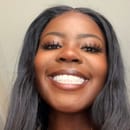Women are going to be criticized regardless of their appearance, actions, or beliefs. At this stage in our lives, we all understand that we must be our own unique selves as unapologetically as we can because haters are gonna hate regardless—we might as well live life the way we please. During one of my many social media rabbit hole sessions last week, I read an interesting article criticizing lipstick feminism; the third wave feminist movement that recognizes that embracing traditional feminine fashion, makeup and trends can also be empowering. The piece made some very interesting points, especially on neoliberalism and consumerism.
However, the human mind is a fickle thing. Naturally, a single line out of this very long piece caught my attention. The author noted that since women are encouraged to adhere to traditional feminine roles and beauty standards, lipstick feminism is unnecessary and self-imposed oppression. This is a very compelling and thought-provoking point.
While I do not seek to diminish the hardships and sexism that those who reject traditional beauty standards face, I can not fathom the notion that conventionally feminine women are not oppressed for their preferences as well. From the pretty blonde being stereotyped as unintelligent to the girl who always wears skirts being called slutty, femininity alone will lead to prejudice.
I will not pretend my irritation with this point is not directly intertwined with my own personal afflictions. I have been referred to as the Pink Princess by both family and friends for years now. Pink has been my favorite color since as long as I can remember—a fact I’m sure my 16 years of ballet training has some influence on. The nickname has long been both a sore spot and a beloved phrase of endearment.

As I’ve grown up, I have learned to resent my affliction for pink. When I was younger, I was led to believe pink was the color of girlhood, emotions, and breast cancer—all things I instinctively knew to be the ‘worst’ aspects of society. Even now, as a college student double majoring in both political science and broadcast journalism, I still see the many ways ‘girly’ preferences are belittled.
The world of politics (like most industries) is dominated by wealthy white men who traditionally see attractive women as things to be conquered, and certainly not as equals whose opinions and suggestions must be respected. To be an attractive, feminine woman working in politics means to be reduced to a secretary or to have your ideas reduced to background noise. Most women in the political sphere attempt to tone down their feminine habits and appearances, opting for fewer florals and bright colors for a more muted, androgynous presentation. As a black woman entering politics, I am extra wary of the effects of misogynoir—the intersection of both sexism and racism.
Granted, these are shared experiences women have in all sectors of most industries regardless of how they physically present. As I previously mentioned, to be a woman is to be judged constantly regardless of your appearance or decisions. It’s hard enough demanding the respect we deserve from men. Must we compare and contrast the proper ways to empower ourselves?
Various women absolutely face differing levels of discrimination—that’s what intersectionality is all about. However, embracing and validating women’s individual choices, preferences, and capabilities is at the center of feminist thought. The fight for gender equality is not about what historically feminine aspects you adhere to—but rather about expanding on what it means to be a woman.


